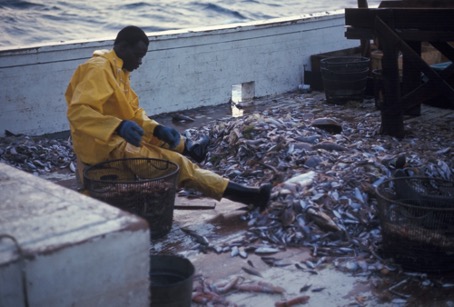The blue economy describes activities within aquatic systems, encompassing both subsistence and commercial fishing, as well as renewable energies and blue carbon.
In 2018, the African Union published a report outlining the strategy to be implemented for this sector, which amounts to $300 billion and provides employment for 50 million people on the continent. If fish caught in African waters were processed and consumed locally, the continent’s GDP could increase by $50 billion.
The sector relies on the quality and preservation of the ecosystem. However, climate change, ocean pollution, and illegal fishing are degrading this ecosystem.
AU member states advocate for a revision of financial support systems deployed globally to curb overfishing, a phenomenon affecting the majority of oceans. Concurrently, they have set the goal of protecting 30% of territorial waters within the next five years.
African ambitions hinge on the financial capacity of states to implement their strategy for sustainable resource management and the inclusion of their population in value chains.
Source: Brooking.edu




